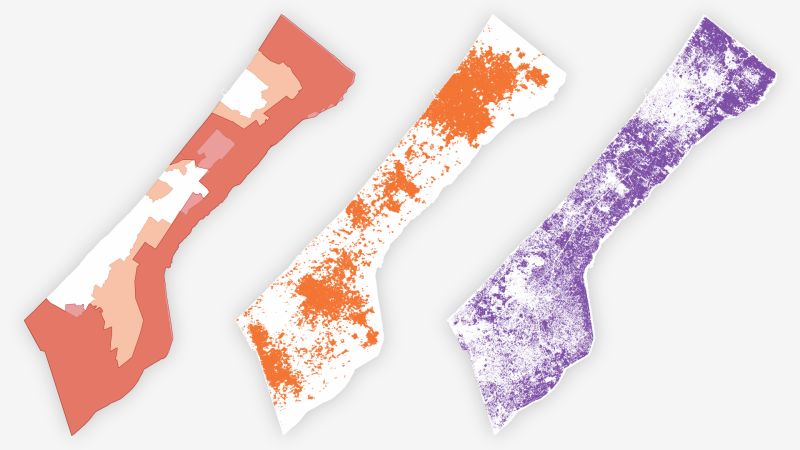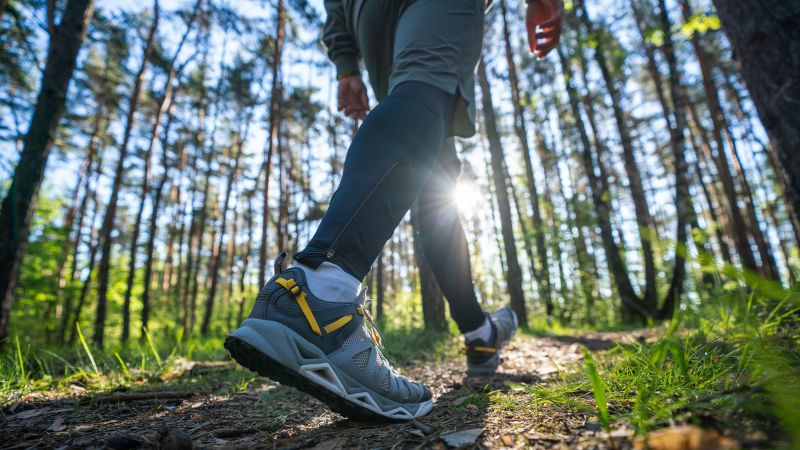The Geography Of Displacement: How Israel's Actions Restrict Palestinian Mobility In Gaza

Welcome to your ultimate source for breaking news, trending updates, and in-depth stories from around the world. Whether it's politics, technology, entertainment, sports, or lifestyle, we bring you real-time updates that keep you informed and ahead of the curve.
Our team works tirelessly to ensure you never miss a moment. From the latest developments in global events to the most talked-about topics on social media, our news platform is designed to deliver accurate and timely information, all in one place.
Stay in the know and join thousands of readers who trust us for reliable, up-to-date content. Explore our expertly curated articles and dive deeper into the stories that matter to you. Visit Best Website now and be part of the conversation. Don't miss out on the headlines that shape our world!
Table of Contents
The Geography of Displacement: How Israel's Actions Restrict Palestinian Mobility in Gaza
The besieged Gaza Strip, a small coastal enclave, is more than just a geographical location; it's a stark illustration of restricted movement and profound displacement. Israel's control over Gaza's borders, airspace, and even its waters significantly limits Palestinian mobility, impacting every aspect of life – from access to healthcare and education to economic opportunities and family connections. This article delves into the complex geography of displacement in Gaza, examining how Israel's actions systematically restrict the movement of Palestinians.
A Closed-Off World: Gaza's Borders and the Reality of Movement Restrictions
Gaza's borders are heavily fortified and controlled by Israel. The movement of people and goods is severely restricted through a complex system of checkpoints, permits, and closures. These restrictions are not only arbitrary but often subject to rapid and unpredictable changes, leaving Palestinians in a constant state of uncertainty. This lack of predictability profoundly affects daily life, making even essential tasks such as accessing medical care or visiting family in the West Bank incredibly challenging. The limited number of crossings, such as the Erez Crossing for pedestrians and the Kerem Shalom Crossing for goods, are frequently closed, often with little or no notice.
The Impact on Daily Life: Healthcare, Education, and Economic Opportunities
The restrictions on movement have devastating consequences for Palestinians' access to essential services. Patients requiring specialized medical treatment often face insurmountable obstacles in reaching hospitals outside Gaza due to the stringent permit requirements and unpredictable border closures. Similarly, access to higher education is hampered, as students struggle to attend universities in the West Bank or elsewhere. The economic impact is equally significant, as the restrictions on the movement of goods severely limit trade and economic opportunities, exacerbating the already dire humanitarian situation in Gaza. The lack of free movement contributes to high unemployment and poverty rates within the population.
Beyond the Physical Barriers: Psychological and Social Impacts
The constant limitations on movement extend beyond the physical barriers, creating a pervasive sense of confinement and hopelessness among the Gazan population. The psychological impact of living under such restrictive conditions is profound, leading to increased stress, anxiety, and depression. The inability to freely connect with family and friends outside Gaza further isolates individuals and communities. This continuous state of uncertainty contributes to a feeling of powerlessness and undermines the social fabric of Gazan society.
International Humanitarian Law and the Right to Movement
The restrictions on Palestinian movement in Gaza represent a clear violation of international humanitarian law and fundamental human rights, specifically the right to freedom of movement. Numerous human rights organizations, including [link to Human Rights Watch report], [link to Amnesty International report], and [link to UN report], have documented these violations and called for an end to the restrictive policies. These reports highlight the devastating human cost of these policies and urge the international community to take action.
Looking Ahead: The Need for Sustainable Solutions
Addressing the issue of Palestinian mobility in Gaza requires a multifaceted approach that tackles both the immediate humanitarian needs and the underlying political issues. The international community must exert pressure on Israel to ease the movement restrictions and ensure respect for international law. Long-term solutions necessitate a political settlement that guarantees the right of Palestinians to freedom of movement and self-determination. Until then, the geography of displacement continues to define the lives of millions in Gaza.
Call to Action: Learn more about the situation in Gaza and advocate for policies that promote freedom of movement and respect for human rights. You can support organizations working to improve the lives of Palestinians in Gaza by [link to relevant organization].

Thank you for visiting our website, your trusted source for the latest updates and in-depth coverage on The Geography Of Displacement: How Israel's Actions Restrict Palestinian Mobility In Gaza. We're committed to keeping you informed with timely and accurate information to meet your curiosity and needs.
If you have any questions, suggestions, or feedback, we'd love to hear from you. Your insights are valuable to us and help us improve to serve you better. Feel free to reach out through our contact page.
Don't forget to bookmark our website and check back regularly for the latest headlines and trending topics. See you next time, and thank you for being part of our growing community!
Featured Posts
-
 Investment In Nature The Cost And Craftsmanship Of Decade Grown Furniture
Jun 02, 2025
Investment In Nature The Cost And Craftsmanship Of Decade Grown Furniture
Jun 02, 2025 -
 Promising Advances In Colorectal Cancer New Research On Treatment And Prevention
Jun 02, 2025
Promising Advances In Colorectal Cancer New Research On Treatment And Prevention
Jun 02, 2025 -
 50 Steel Tariffs Analyzing The Trump Administrations Decision
Jun 02, 2025
50 Steel Tariffs Analyzing The Trump Administrations Decision
Jun 02, 2025 -
 Two Fatalities 500 Arrests Mark Chaotic Psg Win Celebrations In France
Jun 02, 2025
Two Fatalities 500 Arrests Mark Chaotic Psg Win Celebrations In France
Jun 02, 2025 -
 Examining The Bondi Stabbing How Oversight Allowed Joel Cauchis Escape
Jun 02, 2025
Examining The Bondi Stabbing How Oversight Allowed Joel Cauchis Escape
Jun 02, 2025
Latest Posts
-
 How Weight Loss Drugs Contribute To Loose Skin And Diminished Self Confidence
Sep 22, 2025
How Weight Loss Drugs Contribute To Loose Skin And Diminished Self Confidence
Sep 22, 2025 -
 Weight Loss Drugs The Unexpected Side Effect Of Loose Skin And Self Esteem
Sep 22, 2025
Weight Loss Drugs The Unexpected Side Effect Of Loose Skin And Self Esteem
Sep 22, 2025 -
 The Psychological Toll Of Loose Skin Following Weight Loss Drug Treatment
Sep 22, 2025
The Psychological Toll Of Loose Skin Following Weight Loss Drug Treatment
Sep 22, 2025 -
 Rams Rookie Puka Nacua Discusses His Philadelphia Debut
Sep 22, 2025
Rams Rookie Puka Nacua Discusses His Philadelphia Debut
Sep 22, 2025 -
 Cleveland Guardians Hot Streak 10 Straight Wins Tigers In Their Sights
Sep 22, 2025
Cleveland Guardians Hot Streak 10 Straight Wins Tigers In Their Sights
Sep 22, 2025
